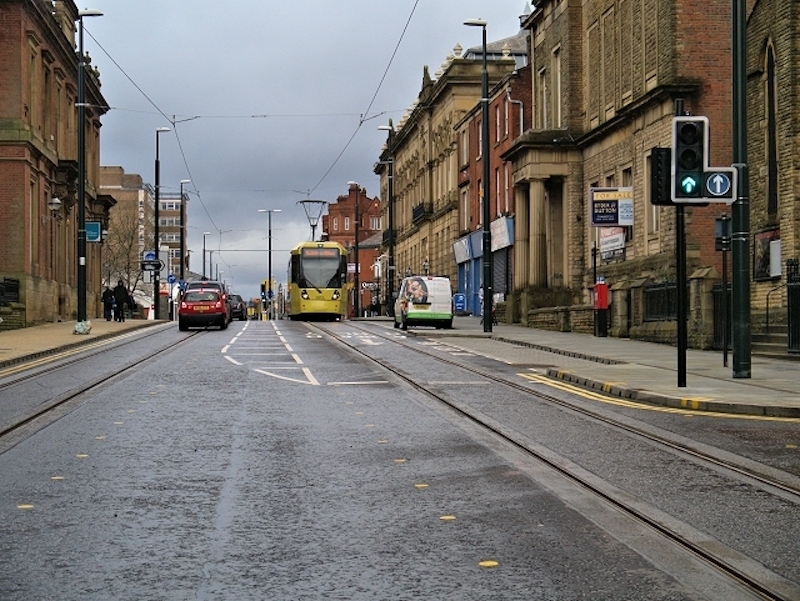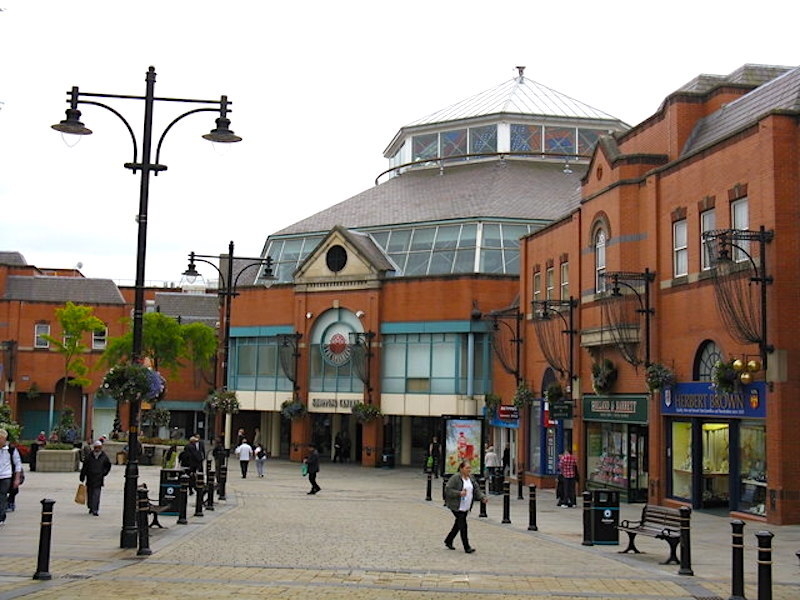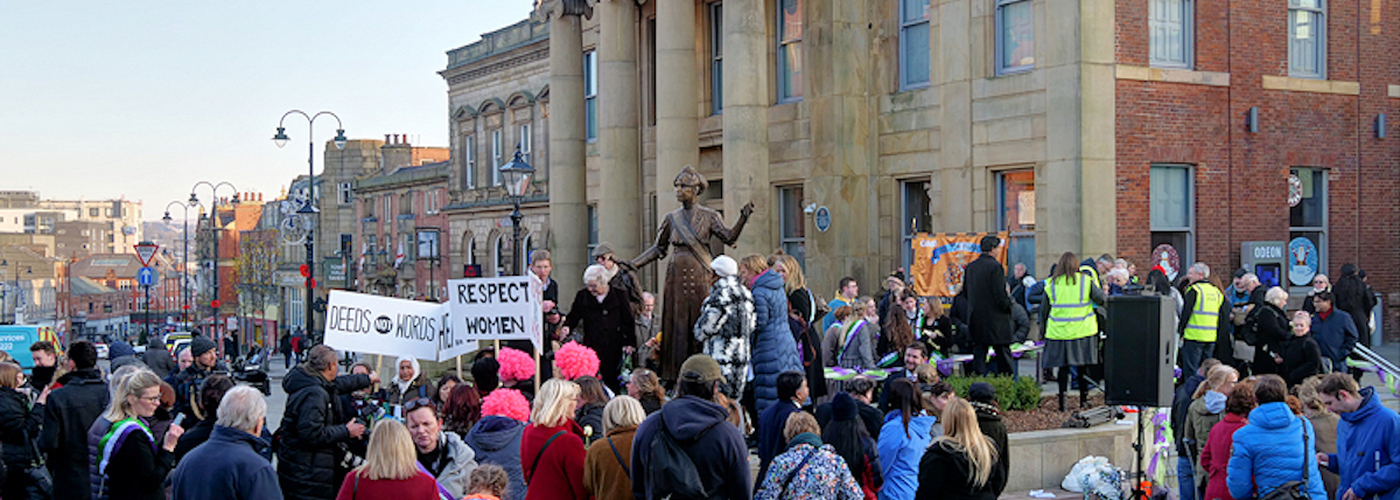Sean Fielding says that political instability has set Oldham back before, and looks set to do so again
“Who’s next to the chopping block then?”, was the WhatsApp message I received in the early hours of last Friday morning. The sender was referring to the Leader of Oldham Council losing their seat in the elections last week, one year on from my losing my seat in the elections last year. I had promised myself (and my girlfriend) that I wouldn’t stay up to hear this year’s results come in, but I couldn’t help myself and got back out of bed at 1am to fire up Twitter and see what was happening.
Despite these seemingly impossible circumstances Oldham still pressed ahead with ambitious plans to try and turn things around.
The loss of two Council Leaders, in two years, in Council wards that have historically been safe for my party (Labour), is unprecedented. What is going on in Oldham is not normal, but the flippant tone of the WhatsApp message I received that morning shows that the toxic political environment, and the instability it brings, has been entirely normalised in Oldham.
The scale of Labour losses in Oldham for a second year in a row confirms that the disinformation campaign accusing me of covering up child abuse which ended my political career in Oldham’s 2021 Local Elections continues to claim victims. Particularly when set against the backdrop of generally positive results for Labour.
Much has been, and likely will be, written about the implications of this for politics in general, but I want to write specifically about what the instability and toxicity in Oldham means for the borough I grew up in.

Oldham is in the north-east of Greater Manchester. An advisor that used to facilitate our Labour Group away days once said, “nobody in London knows where you are, and if they do, they think you’re part of Manchester”.
On top of this, it’s a borough with a troubled history, having been the location of race riots in 2001, described as “ungovernable” by the Audit Commission in 2003 and identified as the most deprived town in England in 2016. Unfortunately, there was a degree of acceptance in the region that this was just how it is with a former senior Greater Manchester figure not so long ago describing Oldham and some of its Greater Manchester neighbours as “just the place where poor people live”.
Despite these seemingly impossible circumstances, and the defeatism of some of those we should have been able to count on as supporters, Oldham still pressed ahead with ambitious plans to try and turn things around.
During my time as Leader, we launched “Creating a Better Place”, a £306 million investment programme to update the Council’s operational property and release surplus publicly owned brownfield sites for new homes, protecting the Green Belt.
This included the purchase of Oldham’s Spindles Shopping Centre at a bargain-basement price from its California-based owners, to convert into office space, a new market and a performance, conferencing and events space to generate more footfall and reinvigorate our struggling town centre.

Combined with becoming an accredited Living Wage Employer - to pay a decent wage to our staff and contractors - and increasing the proportion of Council spend with local companies to keep money in the borough, it genuinely felt like things were beginning to change for the better. However, with the downward trajectory of the Labour Party in Oldham, and “all out” elections scheduled for next year, all of this now hangs in the balance.
Oldham has been here before. In 2000 the Council flipped directly from Labour to the Lib Dems following a populist campaign by the latter to scrap plans for a new joint football and rugby stadium for Oldham Athletic and Oldham Roughyeds. The new ground was kicked in to touch and saw Roughyeds forced to play their home games in another Borough for a period and Latics stuck at dreary and unsuitable Boundary Park, arguably leading to the long-running problems that saw the team crash out of the Football League last month.
Out of their opposition comfort zone the Lib Dems were outed as populist opportunists with no vision for the Borough and Labour regained the Council in 2003.

However, instability hit again in 2008 in the form of a Lib Dem/Tory coalition which had been elected on another populist ticket whose platform included scrapping the construction of new schools under New Labour’s Building Schools for the Future (BSF). The result was the cancellation of a desperately-needed new school close to Oldham Town Centre, the requirement for which is only just being addressed 14 years on, and missing the boat to secure cash for two other school rebuilds when Michael Gove scrapped BSF in July 2010.
This time the populist campaign is “We will sell the Spindles because the Council don’t know how to run a shopping centre”. This misses the point, of course; Oldham Council has no intention of trying to run the shopping centre as a shopping centre, or even of running it itself. Though sadly, along with the smear campaign I referenced at the beginning of this article, the line is gaining traction.

If history were to repeat itself next year and a populist administration (this time most likely a rainbow coalition of Tories, Lib Dems and Independents) were elected on a promise to flog Spindles, that would have grave implications for the Council’s financial strategy, the local economy, the number of homes that are built and the protection of the green belt. While neighbouring boroughs with similar demographics, namely Rochdale and Bury, press ahead with improving their places, Oldham would fall even further behind.
The most depressing thing in all of this is that a contributing factor to this outcome will have been the campaign of vicious lies and smears that my former colleagues and I have faced for the best part of four years.

A journalist contact of mine with whom I had a drink after my loss said: “To me, Oldham seems like a failed state. Anybody who tries to do anything positive is jumped upon and gotten rid of before they have chance to make any positive change.” That’s a fair description, and it’s created an environment where fewer people of the calibre Oldham needs want to work or stand for election in the Borough.
I cared about Oldham, and for the time I was there, I did what I thought was right to make it a better place rather than following my peers who see leaving town as the best opportunity for a better life. But care is not infinite, particularly not in the face of the kind of attacks that those seeking to make change in Oldham have faced in recent years. This is why I now find myself having followed the all-too-common trajectory out of borough. For Oldham’s sake, I just hope that there are enough people left to kick back against the hate and keep the place on the right path.
About the author
Sean Fielding was the Leader of Oldham Council from May 2018 until May 2021, and is the youngest person to hold the position. Sean was also lead on Employment, Skills and Digital for the Greater Manchester Combined Authority. He now works for a communications consultancy and lives in central Manchester.















